[display-map id=”9171″]
SANTANDER

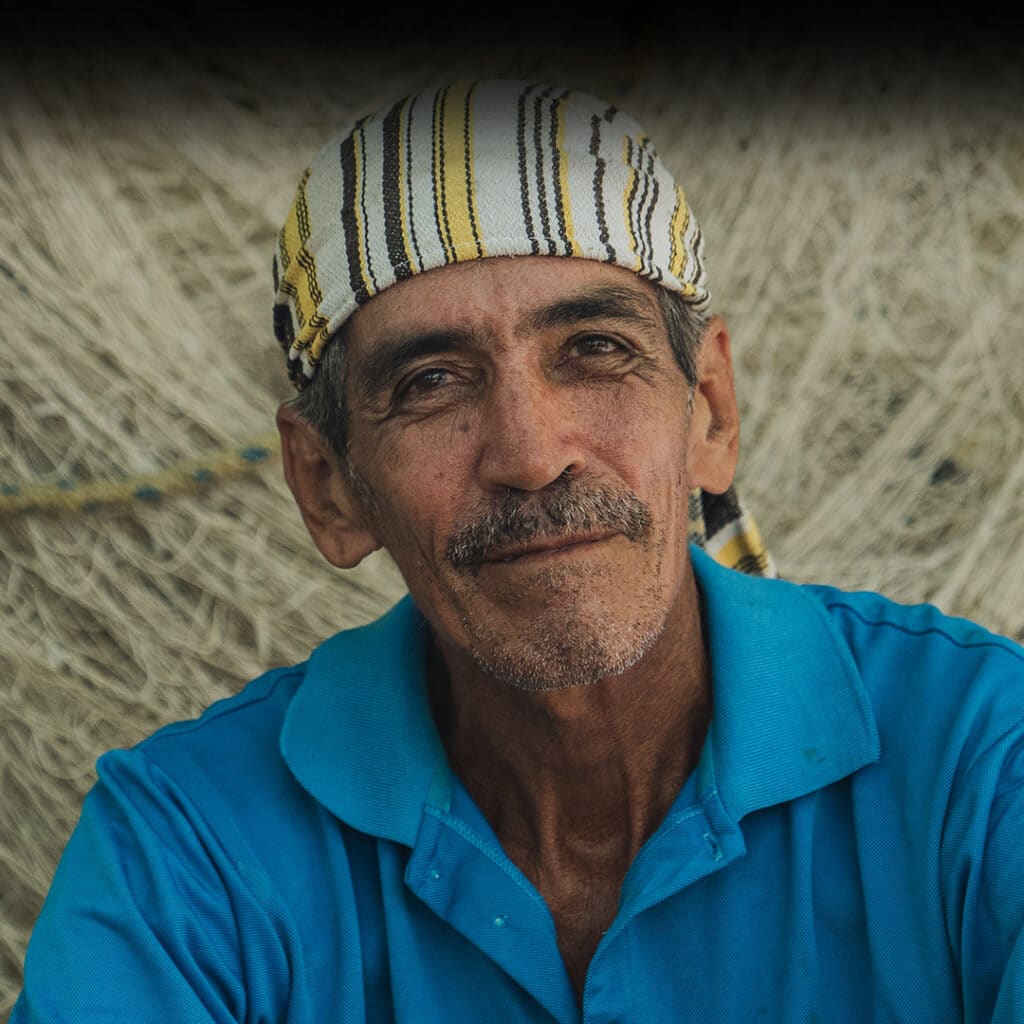
Displacement for “Development”
The villages of Nueva Venezia and La Unión are located on a peninsula in the jurisdiction of El Llanito, District of Barrancabermeja, Santander, and have been inhabited by farmers in the region for more than 60 years. The inhabitants of these villages are mostly peasants, fishermen and single mothers that live from the earth and the river, growing crops, raising cattle and chicken.
For decades, people lived a quiet life, maintaining ecosystemic and cultural dynamics of care towards the river that gives them the water they drink and use for agricultural purposes.
Even though the inhabitants of the villages of Nueva Venezia and La Unión are legal owners of their territories, renewed interest of Colombia’s government and of multinational companies towards the Magdalena River, that had long been put aside in favor of road freight, is increasingly threatening their ability to live from the land.
In 2012, the Magdalena River Navigability Recovery Project was formulated and the Public Private Partnership (PPP) contract to recover the navigability of the Magdalena River was granted to Comagdalena, a governmental agency supposedly charged with the protection of the river, and the Navelena consortium formed by the brazilian company Odebrecht and colombian counterpart Valorcon. The Brazilian construction conglomerate, fined billions for its active part in the Operation Car Wash bribery scandal, and Colombian entities received a 916 million dollar contract to dredge a 908 km stretch of the Magdalena river between Puerto Salgar – La Dorada and Barranquilla to a depth of 2 meters, allowing non-stop river navigability.
One of Colombia’s most ambitious port infrastructure megaprojects is being carried out on the Magdalena River as we speak.
The objective is to turn Colombia’s largest river into a cargo transportation highway that connects the center of the country with the carribean coast and the ports of Barranquilla and Cartagena.
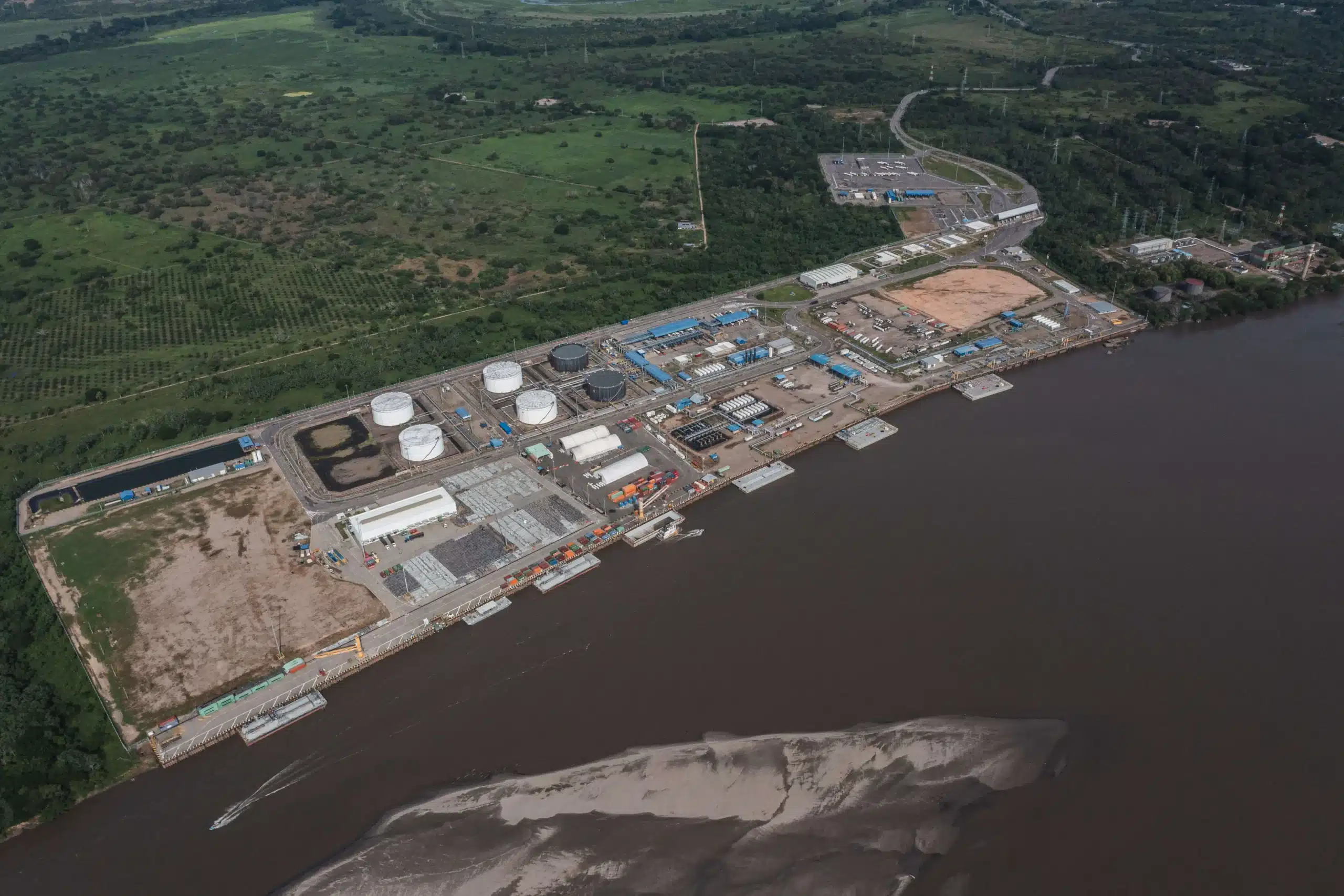
Furthermore, in November 2013, construction of Colombia´s biggest multimodal river port began on the banks of the Magdalena river, a few kilometers from the city of Barrancabermeja, and literally in front of the villages of Nueva Venezia and La Unión. The contract for creating one of the logistical anchors that will allow transport of coal, petrol and other natural resources from the region of Santander to the Caribbean coast, to then be exported to North America and Europe, was granted to the Swiss multinational Trafigura, Impala Terminals.
The port uses the Magdalena river as a highway to transport cargo through the Barrancabermeja – Barranquilla – Cartagena route through modern tugboats and double-hulled barges. This mega project does not only intend to develop the economical strength of the Magdalena region, but also to better the living conditions of the inhabitants living near the facilities.
However, and as the construction of the multimodal port and river recovery process progressed, in 2016, inhabitants of the villages of La Unión y Nueva Venezia noticed that the peninsula on which they live began to suffer from erosion. Thus, in May of that same year, they presented a first petition and complaint to the Navelena company, denouncing that they had dredged only 50 meters from their shore. Navelena´s response was that the erosion was due to the natural course of the Magdalena River, due to the physical phenomenon of the rivers’ flow, and therefore it was not due to the work they were carrying out.
Following investigation, in August 2016, the Extractive and Environmental Study Group of Middle Magdalena – GEAM – submitted a right of petition to the National Authority of Environmental Licenses (ANLA) in relation to the dredging activities carried out by Navelena. The ANLA responded that the Magdalena River recovery project activities were carried out in the riverbed for better protection of the banks and slopes, and were limited to maintenance dredging to ensure navigability of the canal, and that therefore, they were not subject to environmental licensing in accordance with Decree 1076 of 2015.
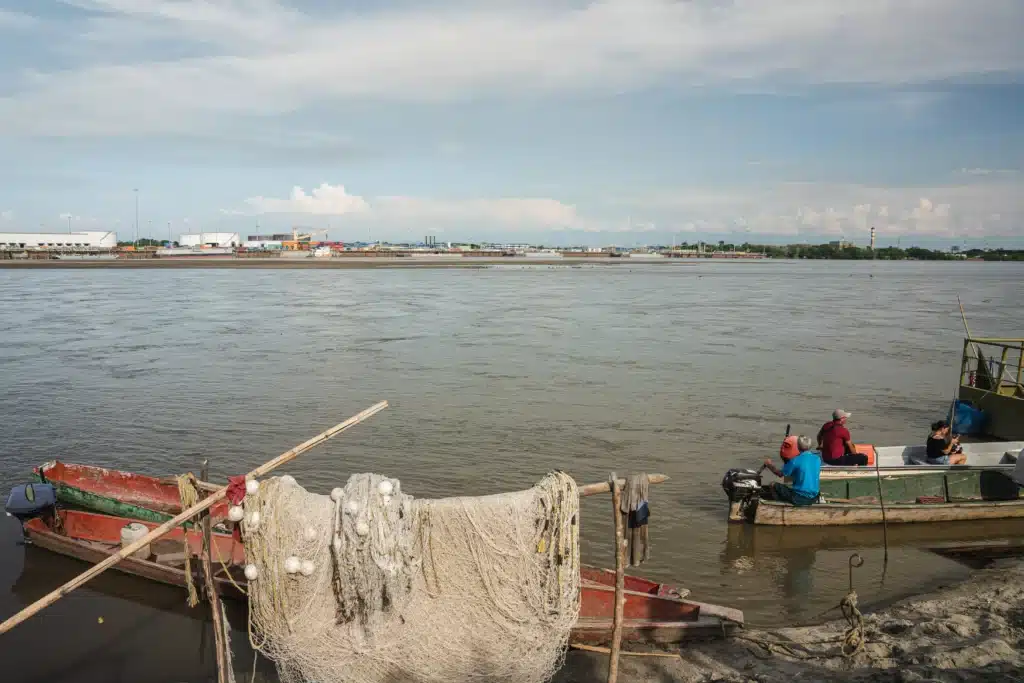
To do so, the brazilian company Odebrecht is dredging the river in order to broaden its course and allow navigability for bigger ships, and the swiss multinational Impala, Trafigura group, is building, since 2013, a multimodal port in the city of Barrancabermeja.
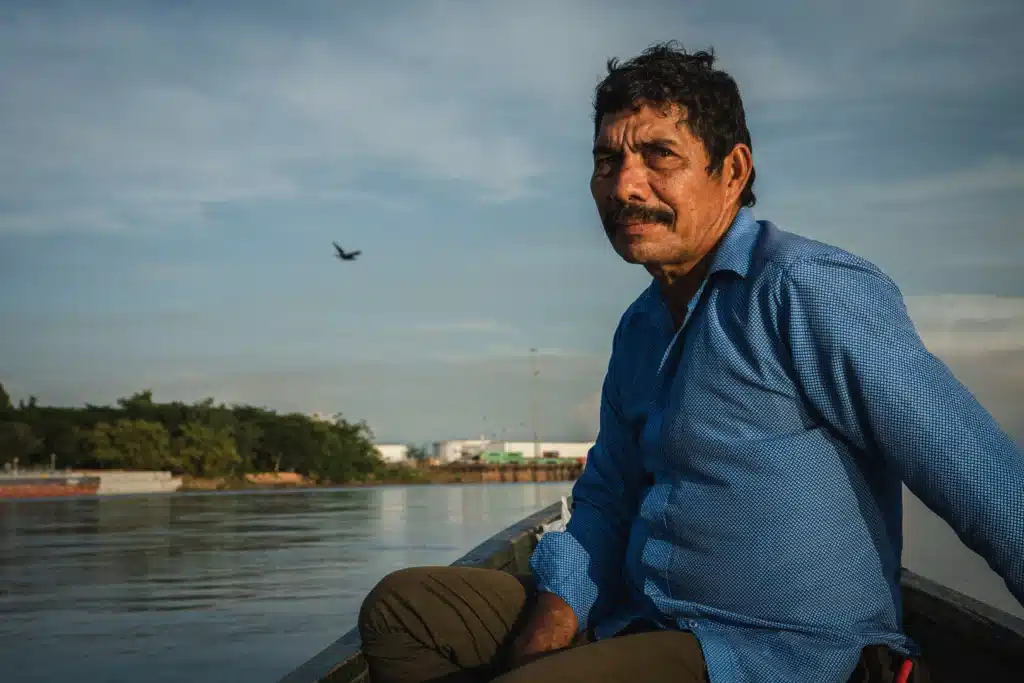
The ANLA also added that, in the event that environmental affectation were to occur due to Navelena’s activities, the surveillance and control of applicable environmental regulations corresponds to Cormagdalena, the regional environmental authority responsible for contracting Navelena for the Magdalena River Navigability Recovery Project.
That said, a series of complaints were made by the villagers regarding the impacts of the dredging on the surrounding water streams, such as the Maldonado stream in the Berlin sector of the El Llanito jurisdiction. Furthermore, GEAM and peasant associations denounced that the dredging was altering the river flow and leading to the erosion of the peninsula, causing a loss of 40% of the total area of the private properties of the villagers.
On December 12, 2016, Navelena finally conducted a technical visit, and in an official letter, dated December 23rd, it stated : “There is no relationship between the facts indicated and the activities carried out by Navelena…, the floodings are due to natural conditions of the Magdalena River, and therefore, it is totally unrelated to any type of intervention on our part…”
In August 2017, inhabitants of La Unión reported to Cormagdalena and Impala, that the Swiss multinational Trafigura was dredging since April 2015 in the areas of Milagros, La Mira and Adriana, causing land loss and damaging crops. Weeks after, Impala responded that they had not been dredging in the Magdalena river and were not responsible for the River Navigability Recovery Project, and that floods, erosion, disappearance of the peninsula and accumulation of sediments were caused by nature itself.
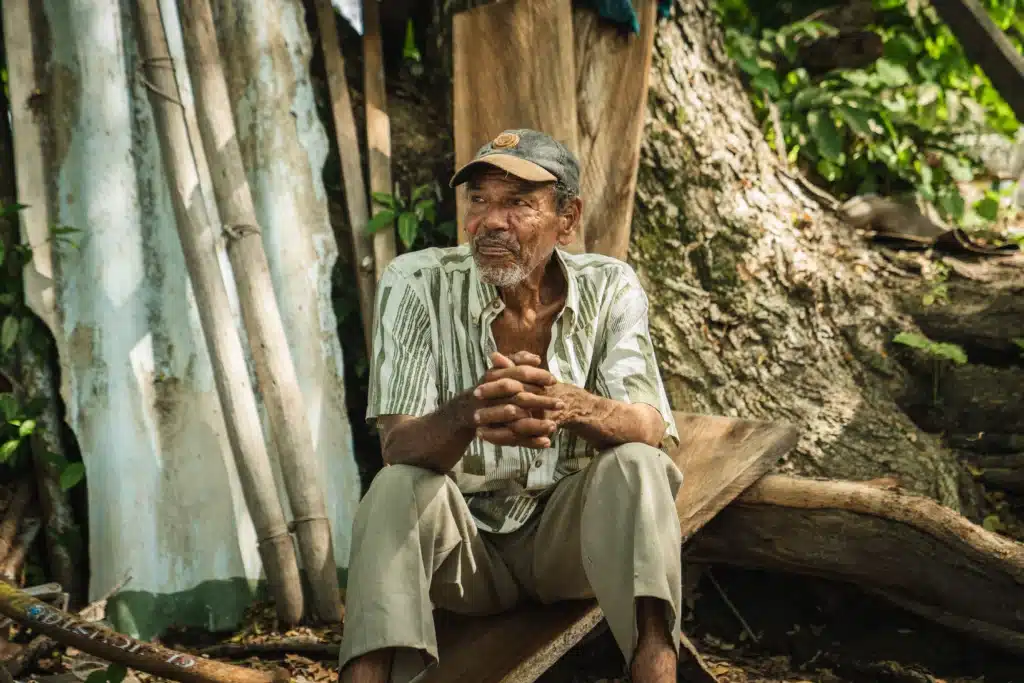
The dredging works and the constant passing of heavy cargos have caused ecological impacts such as soil erosion, river pollution and progressive destruction of peasant crops in the surrounding villages.
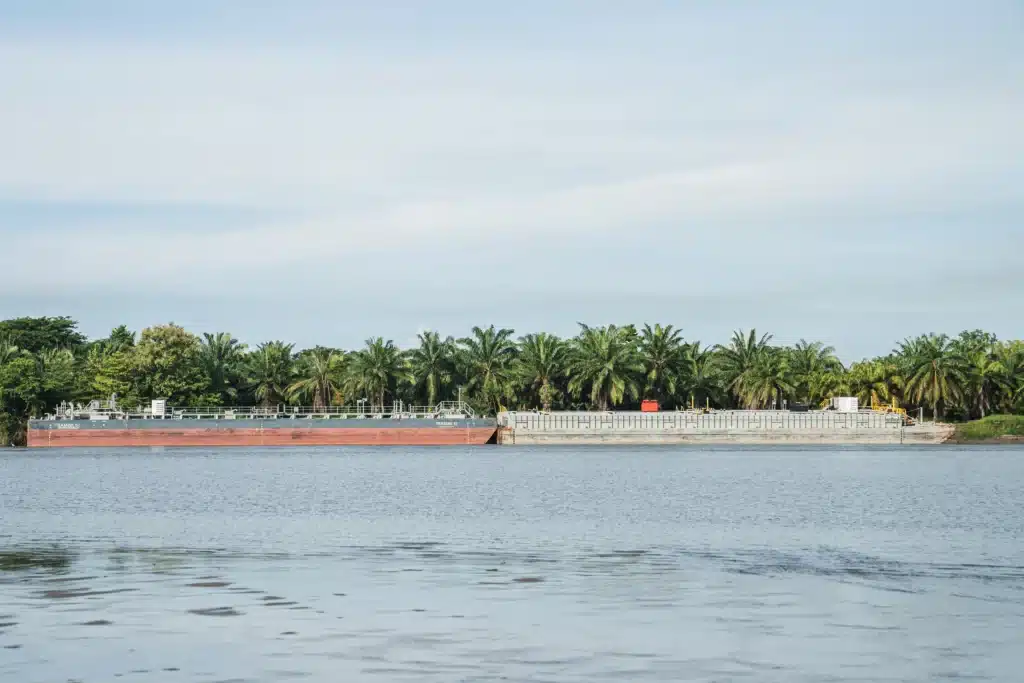
For years now, inhabitants of the peninsula have been filing complaints and petitions, informing environmental entities and control entities, but despite a few promises from Barrancabermeja District and Provicinial Attorney’s Office and Provincial Attorney’s office, nothing is being done to prevent more land and properties being swept away by the river, and consequent forced displacement.
In 2020, and after having lost their school to erosion, villagers were left with no land to live on and ensure their subsistence. Many were forced to move away, with their families, a few possessions and little resources. A few received government aid, but in their majority, villagers were left to fend alone. At the moment, these landless farmers are indebted, having contracted loans that they were never able to pay due to the loss of their land and crops. More than 60 families were affected by these events, composed of approximately 300 people, mostly children and elderly people in a state of defenselessness.
For all of the above and due to the lack of economic resources to support themselves and their families, villagers of La Unión and Nueva Venezia appealed once more to the Ministry of Agriculture, the District Mayor’s Office, Impala (Trafigura group), Cormagdalena, and the ANLA, to find a solution to their problems of housing, employment, education for their children and care for their elders. It is unjust and incomprehensible that in a region where one of the country’s largest infrastructure project is being implemented through thousands of millions dollar investments from multinational companies, local population’s rights are being violated and the environment is being irreversibly destroyed, and not a single government entity is doing anything to ensure the respect of basic human rights and environmental norms.
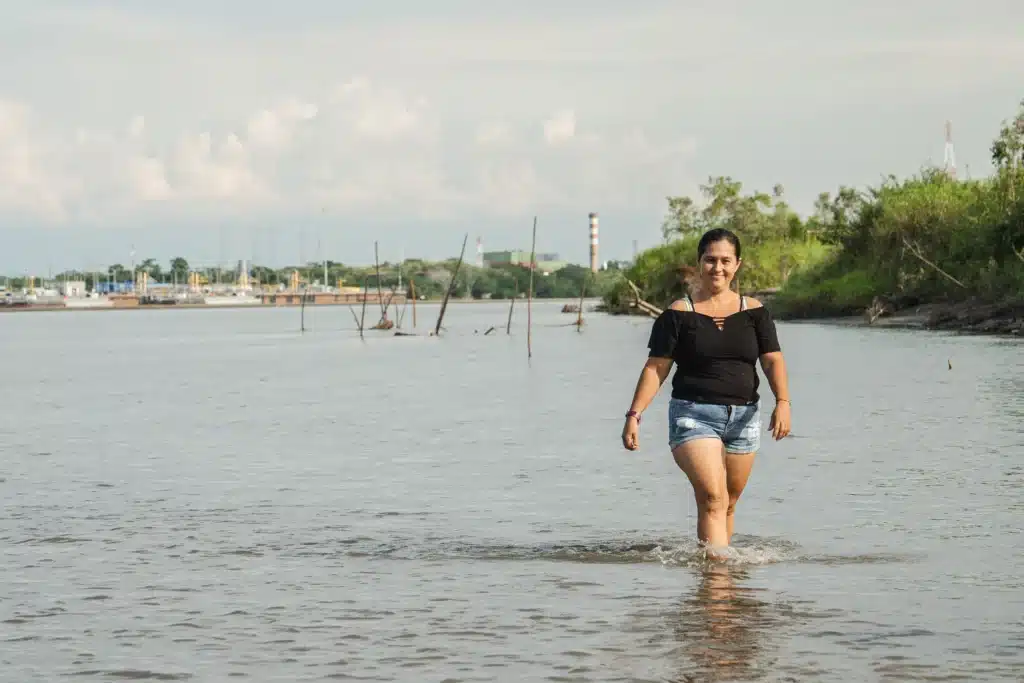
The alarming situation of poverty and neglect in which peasant and fishermen families have been living for more than 60 years, contrasts with the hundreds of million dollar infrastructural project that is being built in front of their villages, just across the river.

